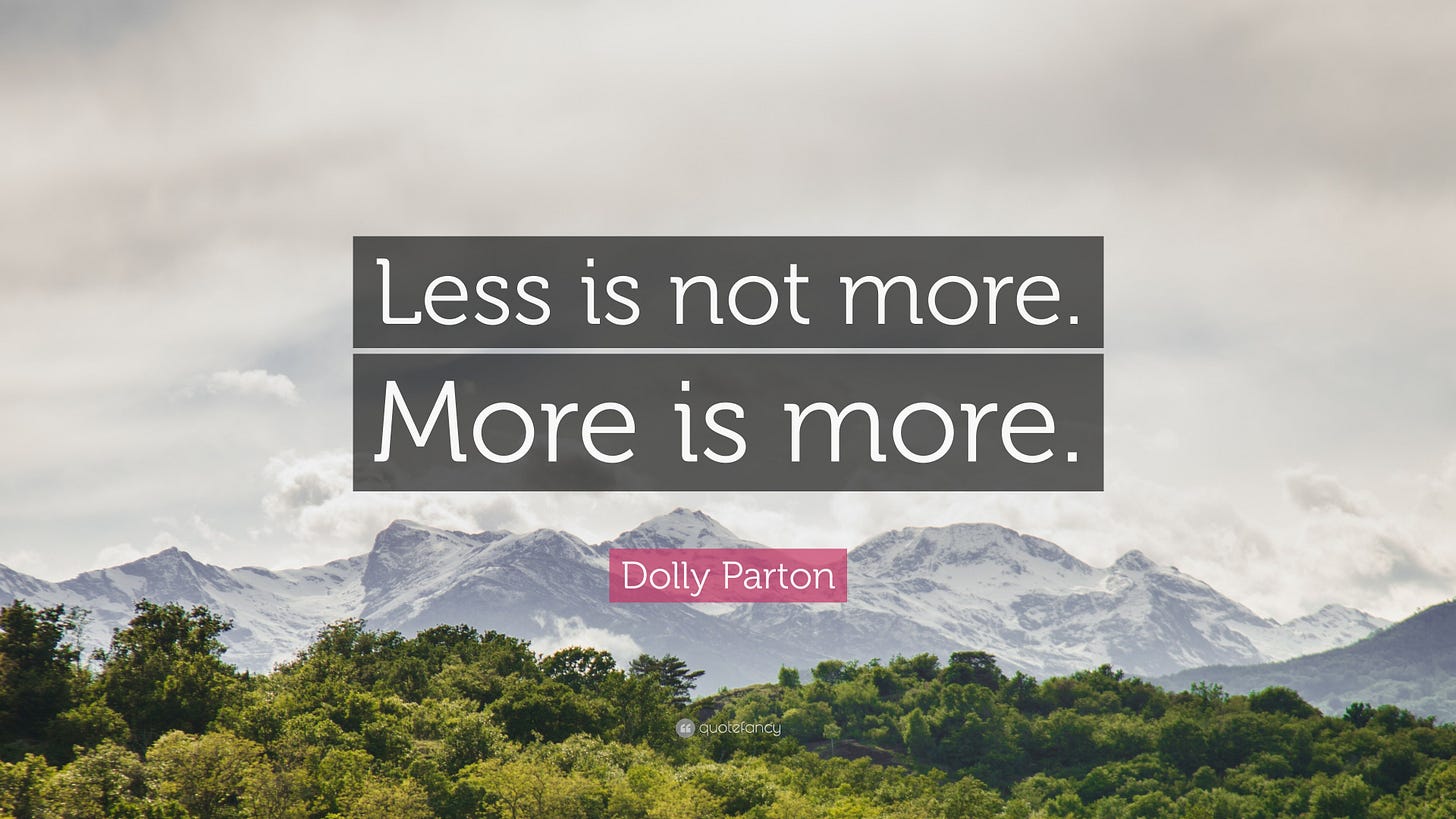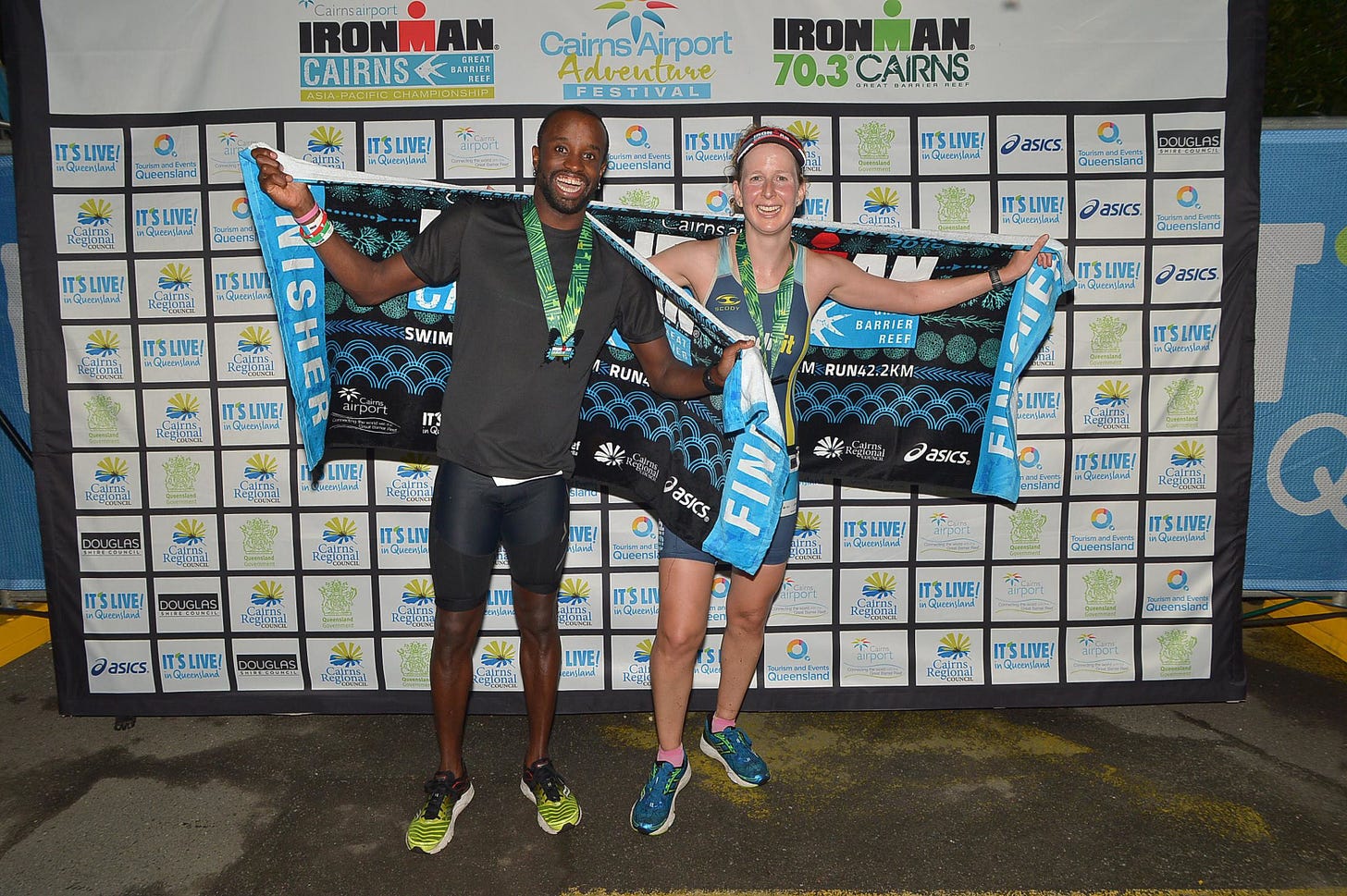Run More, Run Better, Then Try Something New
What It Takes to Achieve Sub-3-Hour Marathons + Boredom
What You’ll Learn To Be 1% Better:
More | Better | New: The Perfect Framework to Scale Anything
What It Takes to Achieve Sub-3-Hour Marathons | Chris Convos in Zone 2
Bored Who Can’t Be Bored Get Manipulated By Themselves
More | Better | New: The Perfect Framework to Scale Anything
Hey, so here are the only three things you need to do if you want to be a better runner, run farther or run faster.
Run more if you can handle it
Run better if running more has hit its limit
Add in or try something new if the first two have been exhausted
That's it—more, better, new. Let’s dive into it further.
This is, ironically, the same framework that marketers and businesses use when they want to grow or scale a product or service.
But because running and life are the same thing — these are also three different ways to step up your running game. The catch? You need to approach it in this order to see the benefit. Doing it any other way is a recipe for disaster.
Let’s start with why more is the most important if you want to see gains.
Less is not more. More is more.
- Dolly Parton
More
I’m usually a less is more guy, but this is one of the few times that more is more. Look at what you're already doing that's working. Maybe your weekend-long runs are killing it for your endurance. Why not do more of that? If those early morning vo2max/threshold intervals have you feeling unstoppable, sprinkle in a few extra sessions during the week.
Find what's clicking and simply do more of it. No need to reinvent the wheel here—just crank up the volume. It's the quickest, easiest way to see some serious gains.
Sports science has proven that progressive overload, which is slowly and methodically adding more resistance, more volume, or more intensity over a long period, is the best way to see gains. It’s boring, but it works in the weight room and on the road.
Actionable task: Track your weekly volume (miles/km) and increase it by 10% across the week, every week, while maintaining your current running routine. Maintain or pull volume back a bit every 2-3 weeks as a recovery week.
This sounds a lot like the 1% better runner philosophy. Speaking of better…
Better
Let’s assume you’ve fully maximized your “more” card potential. If you’ve been piling on the volume (miles/km) and are looking for the next improvement, it might be time to tweak the how part of your run.
How can you make your current running better?
There is an infinite amount, but I’ll ask you a few questions as prompts that might help kick-start your brain to be a better runner:
How can you fine-tune your stride and optimize your breathing patterns?
Have you tried doing focused interval efforts closer to your race pace and found workouts that enhance your specific fitness needs?
Could you improve your recovery routine by better sequencing your post-run activities?
Clothes and gear - could anything be optimized, fit better, or purchased to help? (Warning - please don’t get into the gear and tech trap. It’s easier, cheaper, and more sustainable to fix yourself than pile on more gear. Cycling GOAT Eddie Merckx was right when he said, “Don’t Buy Upgrades, Run Upgrades.” - well, he said ride, but yeah, this is running content 🤷🏽♂️🥹)
There are probably things you're already doing that are "meh" but could be "hell yeah" with a tiny bit more effort.
Actionable task: Do one thing better each week, and after 10 weeks, see where you’re at.
New
Only after you've maxed out more and better should you venture into new territory. This is where you mix things up—try trail running, join a running club, or experiment with more advanced interval training.
Huge warning: new stuff takes time to pay off. It's like planting a seed and expecting a full-grown tree overnight… not gonna happen. Everything you're good at now was once new and awkward, remember?
Funny how we often jump straight to "new" when we're stuck, eh? But in reality, it's the consistency pillar of the 1% better runner. Letting things play out takes patience and discipline, and most don’t do this and rarely see results.
Example: How This Played Out in My Running
So, I was thinking about signing up for a triathlon to boost my half-marathon fitness levels so I could run 1% better each year.
My thought process went like this:
I want to improve my overall performance
Triathlons were intense and could push my base fitness further
I should start training for a triathlon
Sound familiar?
But let's rewind: I want to improve my overall half-marathon performance.
Jumping into triathlon training means:
Learning to swim efficiently (spoiler: my swimming is quite weak)
Rebuilding my time trial race bike that’s in pieces in the basement (time and money!)
Juggling three disciplines in my training schedule + strength training
Potentially burning out before I even get to the starting line
All this before I see any real improvement in my running!
Meanwhile, I could just up my volume or modify my current workouts.
So, if the real goal is to improve my performance, the fastest route is doing more of what already works. How can I get there quicker? By identifying what boosts my performance and doing more of that.
Without this framework, I'd probably be splashing around in the pool, wondering why my half-marathon time has stayed the same for the next two years.
Oh, and by the way, I recently tweaked my interval sessions and guess what? I'm already shaving time off my personal bests.
PS - For marketing and business nerds, this was inspired and adapted from Alex Hormozi’s framework with a similar title.
What It Takes to Achieve Sub-3-Hour Marathons | Chris Convos in Zone 2
Running in Circles: Five Questions That Shape Every Runner
Running isn’t complicated. It’s one foot in front of the other. Repeat. But the questions — Those are endless. They sneak into your head somewhere between the first mile and the last. And the answers? Well, they’re the whole point.
Why did you even start?
Chris started running because soccer practice required it. I started because sitting still didn’t fix anything. Maybe you started because someone dared you or because you saw a finish line photo and thought, “I could do that.” The reason doesn’t matter. What matters is that it got you moving.
How do you keep showing up?
Chris runs the same loop in the park. Every day. No traffic lights, no surprises. It’s simple, and that’s the point. Consistency doesn’t require excitement; it just needs a habit. What’s your trick? Same time? Same place? Same playlist? Whatever makes it easy—do that.
Watch, read and listen to our short conversation in zone 2 on your next run or workout.
On Boredom & Manipulation
THOSE WHO AVOID 10 MINUTES OF BOREDOM ALONE, INVITE A LIFETIME OF CONTROL FROM OTHERS
This is more of a note to my 20-year-old self.
Manipulation isn’t just from others; it’s actually yourself. Distractions make you vulnerable by tricking you into thinking they are a priority (they feel urgent right now but are not important). And you end up not doing the important not-urgent work that will get you to where you want to be when you set your plan a few weeks ago.
Meditation, mindfulness, and running around a short field in circles with no music or podcast might sound hippie and even cliche, but they are tools that everyone could use to better focus on things in life.






